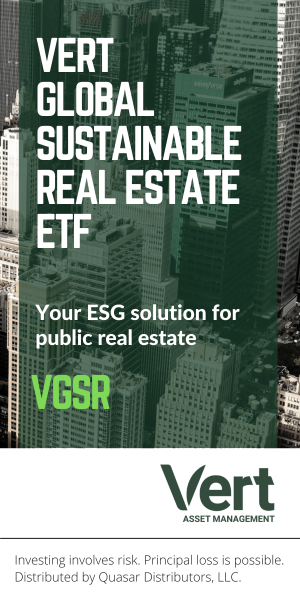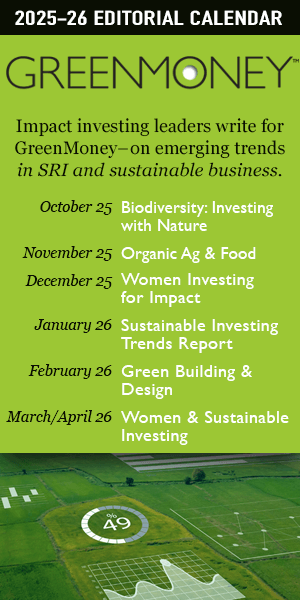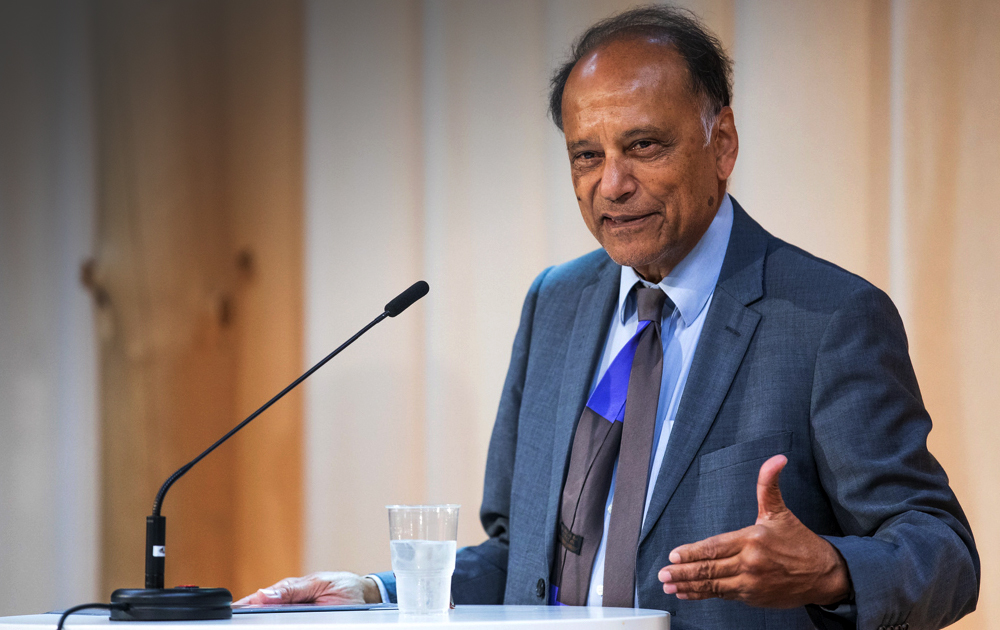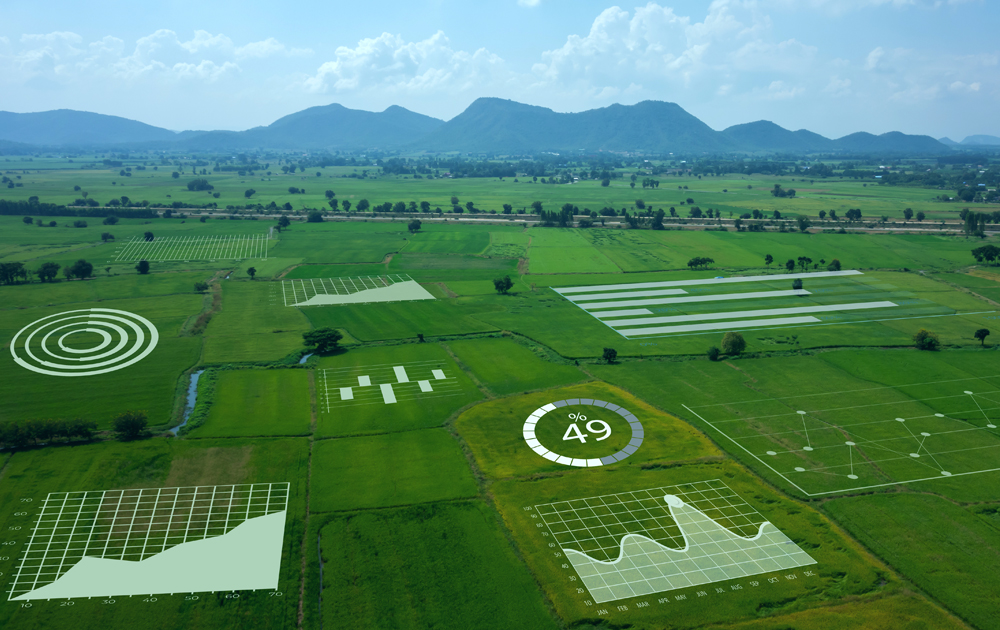
by Christopher Lindstrom, Co-founder of Catalyst Bioenergy Group and the great-great grandson of John D. Rockefeller

As I write this COP21 meetings (www.cop21paris.org) are over, having culminated with a commitment to keep the planet’s temperature rise to 1.5 degrees Fahrenheit. However, the path to achieve this goal is still vague with many questions remaining about how to implement.
As the real work begins, we must find strong leadership among younger generations—the ones who will suffer the most severe consequences of climate inaction—to break through the inertia of the old industrial economy in favor of a new regenerative world. After all, climate change is a symptom of a system of extraction, a system rooted in a worldview formed by a reductionist and linear thought process and relationship to life itself. I, and many of my peers, have major doubts that we will be able to realistically address climate change, and all of the other environmental and social crises that are wrapped up in it, within the existing framework. We need regenerative systems thinking. Reducing emissions is not enough. Nor is it enough to just replace fossil fuels with wind, solar and electric cars. The work is greater, more nuanced and more systematic: for we must regenerate the natural and social capital that has been depleted by over 150 years of callous extraction. There is a new generation of entrepreneurs and activists that are stepping up to this challenge by bridging philanthropy, investing, and systems thinking with social and environmental accounting.
As a fifth generation member of the Rockefeller family, I am aware of the best and worst of my family’s iconic role in the time bomb of fossil fuels. John D. Rockefeller, the founding patriarch and my great-great grandfather, helped set in motion the unprecedented human experiment making standardized oil the world’s primary energy source. By 1879 a small group of men, including his brother William, Henry Flagler and Samuel Andrews dominated 90 percent of the American oil refining industry amassing unprecedented sums of money, recycling it back into banking and finance, and shaped virtually every sector of the economy from agriculture, healthcare, transportation, chemicals and the military as extensions of the fossil fuel economy. After a superficial government crackdown on monopolies, his company, aptly named Standard Oil, split into several subsidiaries that we now know as Chevron, BP Amoco, and ExxonMobil.
Today, these corporations are poster children for the extractive economy. Whether it’s the Exxon spill in Alaska, BP in the Gulf of Mexico or Chevron’s relentless assault on the Amazonian rainforest, they have all demonstrated that they are not just destructive in their practices, but with the advent of climate change, we can say confidently that they are direct threats to life on this planet. And while I may be a benefactor from the wealth that they produce, I am not afraid to say that our survival as a species depends on their dissolution or radical transformation. Thankfully, this process may be underway. After the climate march last year and continuing at COP21, hundreds of financial institutions and foundations, including the Rockefeller Brother’s Fund, have joined the Divest-Invest movement and are pledging to take their money out of fossil fuels and reinvest in clean energy. This is the tip of the spear that will end fossil fuel economic dominance.
But, again, this is going to require major shifts beyond conventional investing or politics.
Most important perhaps, is closing the gap between waste and energy. In nature, there is no waste. What is not used by one organism is energy for another. Nature is fundamentally cyclical. If that cycle is broken, life will collapse.
Fossil fuels, among other things, break that cycle. And in order to mend it, we need a new economic paradigm — an economy that doesn’t just reduce the amount of carbon that is emitted, but one that sequesters more net carbon than is released. Because waste by definition is an open loop, we must implement systems of energy that help complete the cycle by transforming waste into a resource, i.e. energy, recycled materials and soil. By doing this we can begin to address the two major causes of climate change — fossil fuel energy and fossil fuel based industrial agriculture.
As a kid, I was struck by the iconic scene from Back To The Future where Doc Brown shows up out of nowhere in his updated time machine and frantically stuffs garbage into its fuel intake. Perhaps this was some kind of subliminal message for our modern era. Perhaps, the future will require going back to our past for solutions to the present crisis. As it turns out, there have been two basic technologies from the 1800’s (if not earlier) that can sustainably generate energy from waste: anaerobic digestion and gasification. But up until now, they have been seriously marginalized. Whether it be intentional marginalization by fossil fuel interests or complexities in maintaining a consistent output from a complex process, anaerobic digestion and gasification are barely included in the lexicon of sustainability. However, they both generate renewable fuel while recycling waste resources. This gas can be used as fuel for transportation or for generating electricity. But more importantly, they also produce valuable soil by-products. And this is a key carbon mitigating aspect. While aerobic digestion produces a bio-fertilizer rich in nitrogen, phosphorus and potassium, gasification produces a char that is a very stable form of carbon, which, if placed in the ground, can store that carbon for hundreds or even thousands of years.
Next to waste, there are several other issues that must be addressed. As long as the vast majority of people in the world continue to live in destitute poverty while others have more money than they know what to do with, people will continue to ruin the environment. Human beings cannot afford to think about climate change or the environment if they are fighting to feed themselves. And those who live only for the pursuit of wealth at the expense of the vast majority of humanity will likely be just as oblivious to the environment. While this may seem out of context, I think it is a critical component of the Regenerative Economy. One of the most common sense means of helping to fight poverty is through instituting a citizens’ dividend — not unlike what Alaska has been administering to every Alaskan citizen since 2005. While this has been given from the state’s oil revenue, what if everyone in this country received a dividend based on renewable energy and sustainable agriculture? What if we were to establish a national trust where a percentage of all renewable energy was owned in common? That could function as the bases of a green energy dividend. The same could be applied for food production.
The move to a regenerative civilization will not be easy. But we should be wasting no time. If we are trying to limit global temperatures from rising past 2 degrees, radical action is needed. While we hope that governments will back up their commitments with action, I believe civil society will lead the way and make the initial investments to demonstrate the viability of this path. Foundations can exponentially increase their impact if they make the choice to leverage their assets towards regenerative investments. That could set a precedent that would help invite participation from pension funds, which have now been given the green light to invest for impact. After all, the time has come that we close the loop on investing and values. The rewards clearly outweigh the risks.
Article by Chris Lindstrom has devoted the last 15 years of his life to transitioning the economy from a paradigm of extraction to one of regeneration. Starting with money, Chris worked at the E.F. Schumacher Society organizing events on new forms of currency and developed a local currency known as “BerkShares” the received international recognition. Since 2012, Chris has been active in the bioenergy sector as an investor and entrepreneur. He is the co-founder of Catalyst Bioenergy Group.
Chris has served on the Board of Directors of the Slow Money Institute and currently serves as a director of the David Rockefeller Fund.

















